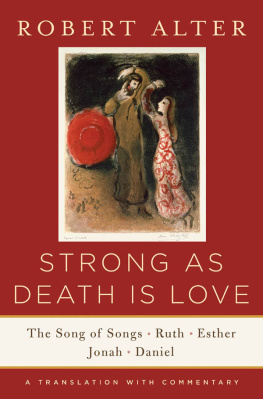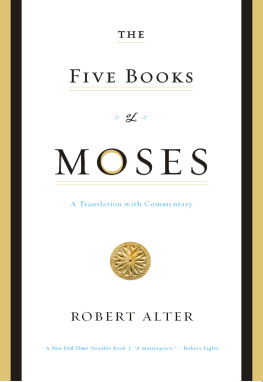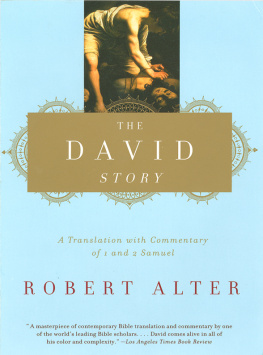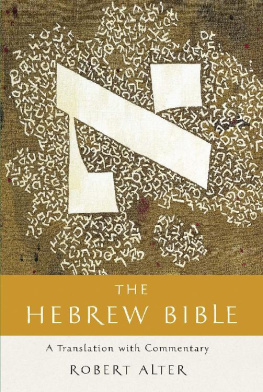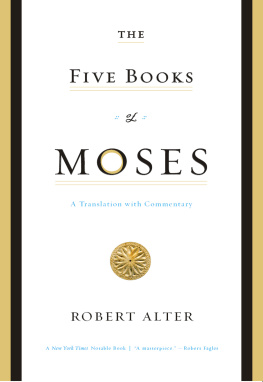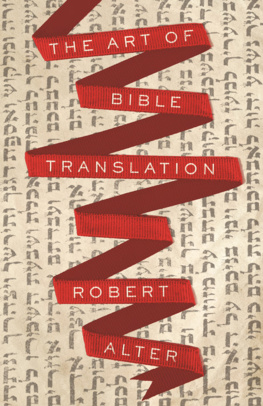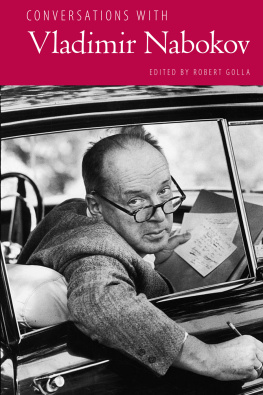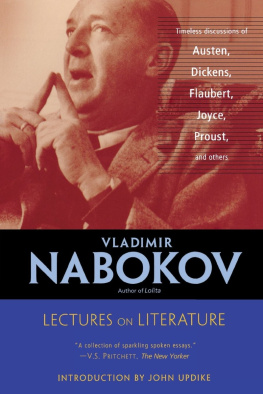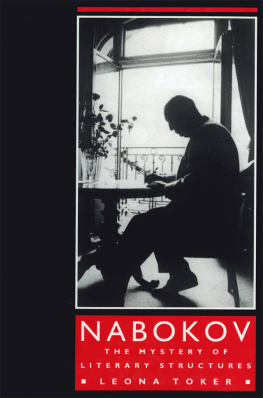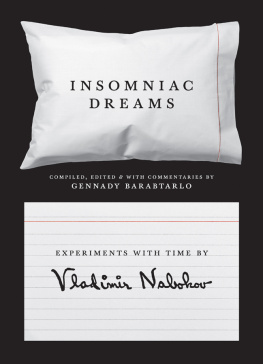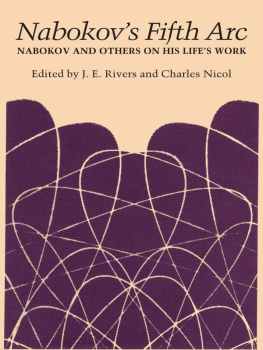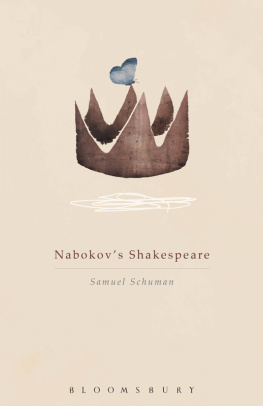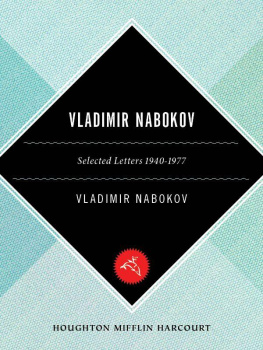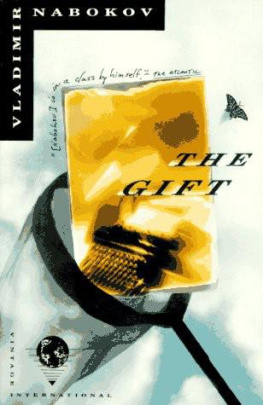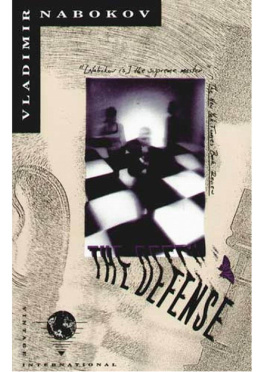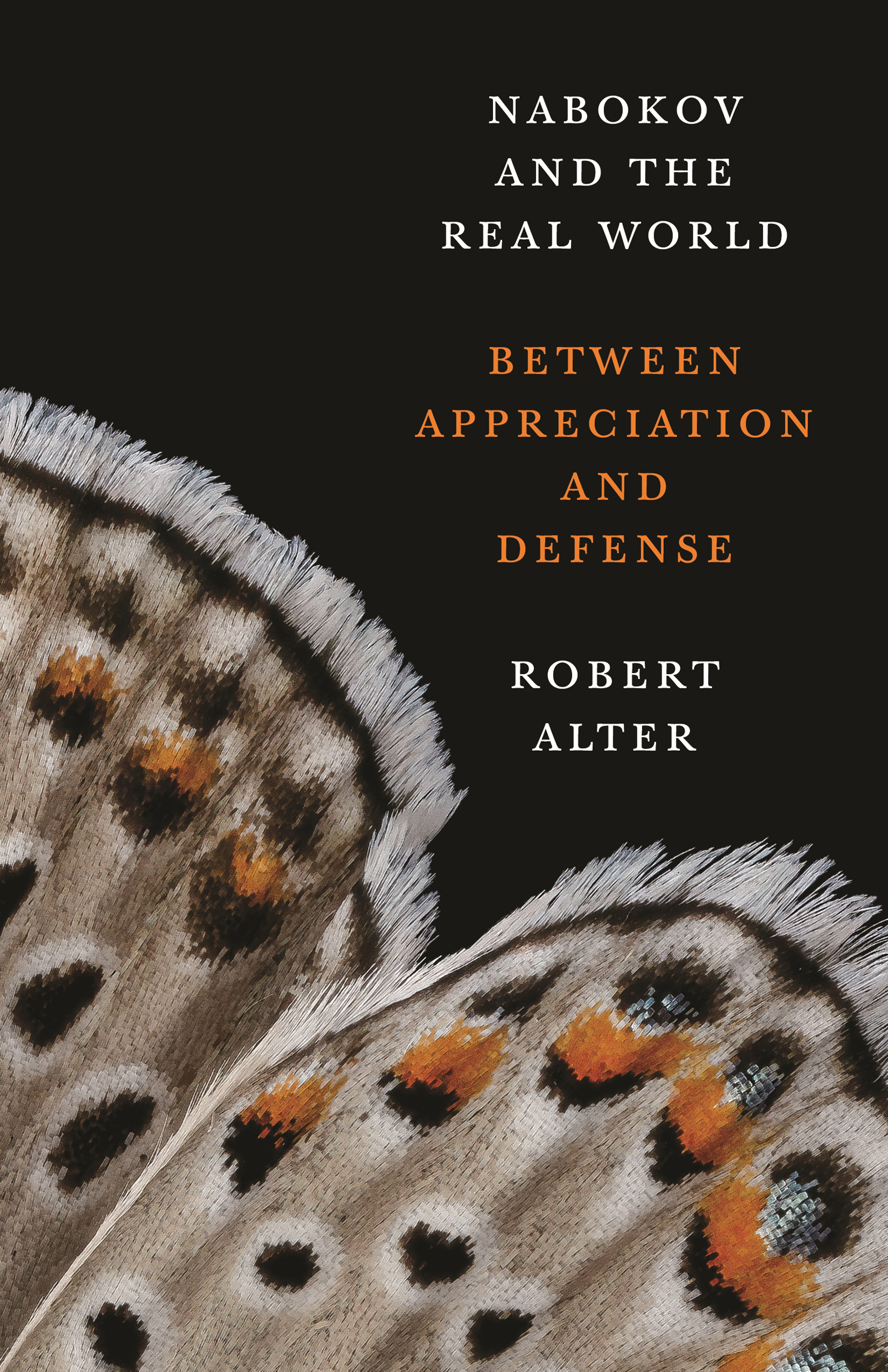NABOKOV AND THE REAL WORLD
NABOKOV AND THE REAL WORLD
BETWEEN APPRECIATION AND DEFENSE
ROBERT ALTER
PRINCETON UNIVERSITY PRESS
PRINCETON & OXFORD
Copyright 2021 by Robert Alter
Princeton University Press is committed to the protection of copyright and the intellectual property our authors entrust to us. Copyright promotes the progress and integrity of knowledge. Thank you for supporting free speech and the global exchange of ideas by purchasing an authorized edition of this book. If you wish to reproduce or distribute any part of it in any form, please obtain permission.
Requests for permission to reproduce material from this work should be sent to permissions@press.princeton.edu
Published by Princeton University Press
41 William Street, Princeton, New Jersey 08540
6 Oxford Street, Woodstock, Oxfordshire OX20 1TR
press.princeton.edu
All Rights Reserved
ISBN (pbk.) 978-0-691-21193-0
ISBN (e-book) 978-0-691-21866-3
Version 1.0
Library of Congress Control Number: 2020951305
British Library Cataloging-in-Publication Data is available
Editorial: Anne Savarese, James Collier, and Jenny Tan
Production Editorial: Kathleen Cioffi
Text Design: Karl Spurzem
Cover Design: Chris Ferrante
Production: Erin Suydam
Publicity: Jodi Price and Amy Stewart
Copyeditor: Daniel Simon
Cover image: Detail of Karner Blue, Lycaeides melissa samuelis. Courtesy of USGSBIML Team
For Hadas,
an avid reader at ten,
with many reading
pleasures ahead of her
CONTENTS
NABOKOV AND THE REAL WORLD
1
Between Appreciation and Defense
Vladimir Nabokov (18991977) remains one of the most polarizing of the major novelists who have written in English. His admirers are passionate about him. These include both critics and many novelists in England, America, and elsewhere. Some gestures of imitation have been made by other writers, though as is generally the case with writers of the first order of originalityProust and Kafka come to mindthese efforts have not been very successful. On the opposing side, there are some readers who cannot abide Nabokov, finding little in his work but coy literary devices, mannered or overwrought prose, and a pervasive archness. Such starkly antithetical responses are uncommon in the reception of eminent writers. Dickens, for example, may not be altogether to every readers taste (Nabokov, as we shall see, happened to be keenly enthusiastic about him), and some may be put off by the gargoyle-like characters, the contrivances of plot, the bouts of sentimentality, yet by and large such readers might say they would rather read Jane Austen but are unlikely to consign Dickens to the dustbin of literature. That, however, is often what those who are put off by Nabokov have done.
In my own response as a critic to this polarization, the discussions that follow may strike some as a bit defensive. I avowedly do not assume that Nabokov is invariably at his best, that he is never free of the self-indulgence of which he is sometimes accused. But such accusation is often the result of a failure to see what is really going on in his novels, and my aim here is to show in a variety of finely tuned ways what such goings on entail. I should say that I have been writing about Nabokov for decades, and my basic view of him has not changed over the years, though it has been deepened by the exemplary work of his biographer and astute commentator, Brian Boyd, and by many critics, the first among them being his earliest prominent American critic, Alfred Appel Jr. Ever since I became an avid reader of Nabokov, I have been convinced that the self-reflexivity of his writing, its ingenious deployment of codes and games, its sheer literariness do not draw us away from the real world outside literature but, on the contrary, are a beautifully designed vehicle for engaging that world.
Even some of Nabokovs admirers, enamored of the games, have been inclined to downplay their purposefulness in illuminating the realm of experience we more or less share when we are not reading fiction. An enthusiastic essay written in 1979 by Mark Lilly vividly illustrates this predisposition. Between the two time-worn functions traditionally assigned to literature, to delight and to instruct, Lilly sees Nabokov coming down entirely on the side of delight: His novels actually become games in which the readers are players, their task being to solve the problems set by the games [of the] master-novelist. It is in this sense that we can properly refer to Nabokov as homo ludens, man the player.
This characterization surely has considerable validity, but I think it fails to tell the whole story about Nabokov. Lilly ends up justifying Nabokovs achievement by saying that his pervasive playfulness is especially welcome in our age of heavy seriousness. It seems to me that this needs to be put differently: the playfulness is finally about serious thingsabout the wrenching turns of modern history, about love and the shattering disappointments to which the lover may be vulnerable, about the terrible toll exacted through manipulative relationships, about loyalty and betrayal. As dismissive as Nabokov chose to be of reality in his pronouncements about it, the games of his fiction repeatedly lead us to experience the various emotional, moral, and even political aspects of the real world.
As an initial take on this large question, which will be addressed from different angles in the pages that follow, I would like to consider That in Aleppo Once , a story written in English in 1943, three years after Nabokovs arrival in the United States. The narrator is a Russian migr poet struggling to obtain the visa that will enable him to flee France after the Nazi invasion and get to the United States. He addresses his story to a certain V., a fellow Russian who has succeeded in entering the United States. V. is a writer, evidently a successful one, who is being asked to turn the narrators story into a published text. He shares a first initial with Vladimir Nabokov, but as elsewhere in VNs fictionone thinks of the narrator in Pnin, who has certain biographical features in common with Nabokov but is otherwise his antithesisthe connection is a tease: later in the story we are told that V. is the father of twins, a marker of his difference as a fictional character from his author. The presence of V. is thus a kind of game that reminds us of the ambiguous border between reality and fiction. Writers long before Nabokov have played this kind of game. At the very inception of the novel as a dominant genre in the modern era, Cervantes undertakes an elaborate maneuver of representing his book as a translation of a work by an Arab historian that he has discovered.
The storys title, That in Aleppo Once, is of course taken from Othellos last speech, just before he commits suicide. At the very end, the narrator pleads with V. not to use these words as a title: It may all end in Aleppo if I am not careful. Spare me, V. you would load your dice with an unbearable implication if you took that for your title. This ending leaves it an open question whether the narrator, in fact, is about to commit suicide. As is almost always the case in fictions constructed on a central allusion to a previous literary text, there are both parallels to and marked differences from the work invoked. The narrator, like Othello, is considerably older than his beautiful young wife, whom he adores. Unlike Desdemona, she actually betrays him, or at least claims to have done so: she is an extravagant liar, even inventing a beloved dog left behind on the couples flight from Paris and later telling an older woman friend that her husband killed the dog, when they never had any pet. The young wife, then, is her own Iago, perhaps inventingsimply in order to torment her husbandthis brute of a man, a seller of hair lotions, with whom she spent several nights after she and her husband were temporarily separated, or perhaps actually indulging in some rough sex with the uncouth stranger.


